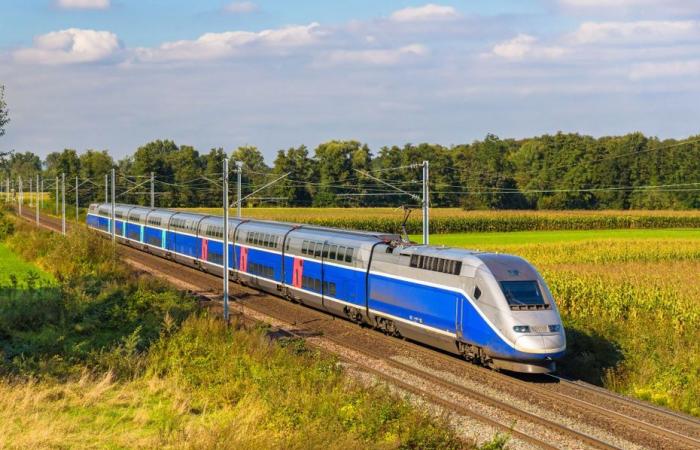While the work is underway, five parliamentarians persist in denouncing the financial cost and ecological impact of the high-speed line linking Bordeaux, Toulouse and Dax. They plead, as an alternative to the GPSO project, for the modernization of “daily lines”.
Company
From daily life to major issues, discover the subjects that make up local society, such as justice, education, health and family.
France Télévisions uses your email address to send you the “Society” newsletter. You can unsubscribe at any time via the link at the bottom of this newsletter. Our privacy policy
Expected as a turning point by its opponents, the weekend of anti-LGV demonstrations in Lerm-et-Musset did not have the desired effect. Five days after the end of the mobilization, which brought together a thousand people in mid-October, the prefecture of Nouvelle-Aquitaine announced the signing of the environmental authorization allowing the construction of railway developments south of Bordeaux.
“This decision (…) will allow SNCF Réseau, project owner, to start work on the Bordeaux-Toulouse rail link as part of the Grand Sud-Ouest Rail Project (GPSO)”announced the prefecture in a press release on October 18, to the great dismay of its opponents. Among them, five parliamentarians continue to fight to propose another path.
Invited on the France 3 Aquitaine set on Sunday evening, Mathilde Feld, LFI deputy for the 12th constituency of Gironde, pleads for the renovation of “everyday lines”. Co-author of a booklet, alongside his colleague Loïc Prud'homme, deputy for the 3rd constituency of Gironde, the Insoumis duo denounces the incompatibility of the GPSO with their conception of transport in the region. “We need a lot of money for everyday lines. We can't do both, we can't have both sides at the same time.she says. As it stands, the GPSO is estimated at 14.3 billion euros. A sum which, according to them, would allow both “renovate and rehabilitate local lines”, “modernize and reopen the main regional and national lines”but also “relaunch night trains”rather than “redo lines that already exist”.
4,800 hectares of land will be massacred by this project
Mathilde Feld,LFI deputy for the 12th constituency of Gironde
Another major argument: the deputies denounce “an ecological disaster”. “There are 4,800 hectares of land that will be massacred by this project, with an upheaval in people’s daily lives”continues Mathilde Feld. The routes of the future roads should in fact cross numerous agricultural lands, forests and wetlands, like the Ciron valley, without taking into account the carbon impact of the construction site itself.
duration of video: 00h01mn37s
In a booklet co-published by Mathilde Feld and Loïc Prud'homme, the LFI deputies from Gironde present an alternative to the Grand South-West Rail Project (GPSO)
•
©Karim Jbali / Nicolas Pressigout
Facing the “democratic denial” denounced in their booklet, Mathilde Feld and Loïc Prud'homme join forces with two other Girondin deputies, Nicolas Thierry (Les Écologists) and Sophie Mette (MoDem), as well as with senator Monique de Marco (Les Écologists) to request a moratorium on work in progress.
In a letter addressed to the Prime Minister, the group of parliamentarians considers that“after an in-depth examination of their ecological, economic and daily transport impacts, it appears obvious that the justification for this work is no longer tenable”. At the environmental level, they believe that “this project will meet neither the decarbonization objectives nor the current needs to combat global warming”.
On the practical side, they affirm regarding the Bordeaux-Dax section that “the modernization work on the existing line is almost 80% complete, and only 20% remains to be completed to offer travel times almost identical to those of the LGV.”
Finally, the five elected officials especially wish to give voice to those most concerned: “A local referendum would not only put an end to this endless debate, but also strengthen citizens' confidence in institutions, by offering them a direct means of participating in decisions that affect the future of their territory.”
As a reminder, the GPSO is financed 20% by the European Union, 40% by the State and 40% by local authorities. Residents of the 2,340 municipalities located less than an hour from an LGV station will have to pay a “special equipment tax”. A final opposition argument for parliamentarians, who are still waiting to be received by the Minister of Transport.






